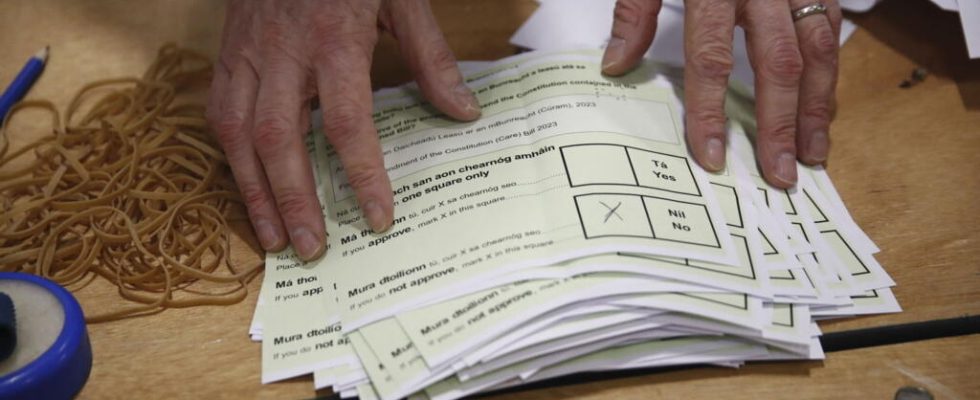The Irish rejected the reform aimed at modernizing the references to women and the family in their country’s Constitution, drawn up in 1937 and heir to the long and strong influence of the Catholic Church on public and private life.
2 mins
“ I think it is clear at this point that the amendments (…) were rejected “, Prime Minister Leo Varadkar, whose center-right government had proposed the reform, announced to the press. “ It was our responsibility to convince a majority of people to vote “yes” and we failed to do so », he added, while the results of the referendum, the wording of which had been widely criticized, have not yet been officially published.
It is a hard blow for the government which has dealt this double referendum, which had two objectives: firstly to extend the constitutional definition of the family, beyond relationships based on marriage, reports our correspondent in Dublin, Clémence Pénard. But the biggest disappointment for feminist associations among others is the “no” to the second part of the referendum which proposed to delete an article referring to the “duties of women at home”, and to reformulate it to recognize the essential role of caregivers in the home. within families: who take care of elderly parents, disabled children, etc.
A “ very old fashioned language about women in the home »
Even before the Prime Minister spoke, several other members of the government had already conceded defeat, the Minister for Equality, Roderic O’Gorman, cited by the Irish Timessaying he was disappointed and regretted that people did not “ not seeing the urgency for change » of the Constitution.
Before the vote, Prime Minister Leo Varadkar estimated that a “no” victory would make “ A step back ” in the country. “ This would send the message to many people that they are not a family under our Constitution “, he said, while it would be maintained “ the very old-fashioned language about women in the home, and the duties of mothers in the home “.
For many Irish people, the new formulations chosen were simply not very clear, which would explain the low participation in the double referendum, it did not exceed 50%, unlike the referendums on the relaxation of abortion or the authorization of gay marriage for which the Irish had largely voted!
